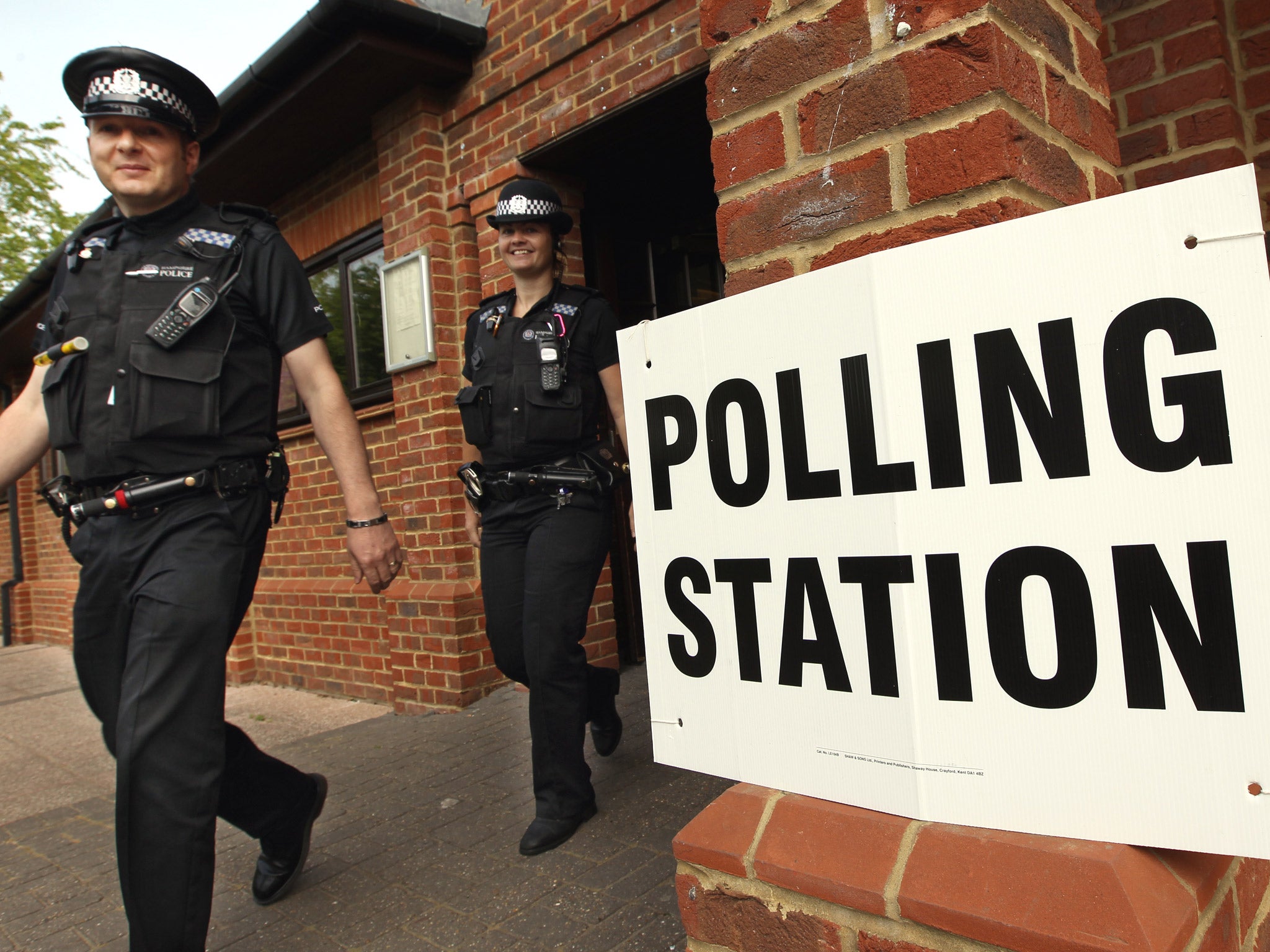Call for police to guard polling stations and voters to carry ID cards in areas at risk of vote-rigging
Elections watchdog raises concerns about voter impersonation in Birmingham, the London borough of Tower Hamlets and 14 other areas where there appears to be a higher risk of electoral fraud

Your support helps us to tell the story
From reproductive rights to climate change to Big Tech, The Independent is on the ground when the story is developing. Whether it's investigating the financials of Elon Musk's pro-Trump PAC or producing our latest documentary, 'The A Word', which shines a light on the American women fighting for reproductive rights, we know how important it is to parse out the facts from the messaging.
At such a critical moment in US history, we need reporters on the ground. Your donation allows us to keep sending journalists to speak to both sides of the story.
The Independent is trusted by Americans across the entire political spectrum. And unlike many other quality news outlets, we choose not to lock Americans out of our reporting and analysis with paywalls. We believe quality journalism should be available to everyone, paid for by those who can afford it.
Your support makes all the difference.Police should be stationed in polling stations in areas at risk of vote-rigging in this year’s contests for the European Parliament and local councils, the Government has been advised.
The Electoral Commission listed 16 areas at risk of electoral fraud and called for police, local authorities and political parties to take tough action in May to combat it.
It also suggested that voters should be required to produce their passport or driving licence in future elections before they are allowed to cast their ballots.
The elections watchdog raised concerns about voter impersonation in Birmingham, where a judge condemned activities which he said would disgrace a “banana republic” following the exposure in 2004 of systemic postal voting fraud in two wards.
It also named the London borough of Tower Hamlets, where a reporter for The Independent was beaten up while investigating allegations of voting irregularities during the 2010 general election campaign.
The commission cited 14 other areas where there appears to be a higher risk of electoral fraud. They are: Blackburn, Bradford, Burnley, Calderdale, Coventry, Derby, Hyndburn, Kirklees, Oldham, Pendle, Peterborough, Slough, Walsall and Woking.
Police forces in those areas should “help identify specific areas where policing operations on the ground might need to be strengthened (around individual polling places, for example)”, the commission said.
The watchdog announced it had begun a study into concerns that communities of Pakistani and Bangladeshi origin were particularly vulnerable to vote-rigging.
“It would be a mistake to suggest that electoral fraud only takes place within specific South Asian communities,” it said. “We are, however, concerned about the extent to which electoral fraud affects or originates from within specific communities.”
It also backed the introduction of a photo-ID system in polling stations, under which people would only be issued with voting papers once they had proved their identity. The new rules for England, Scotland and Wales could be modelled on the system in Northern Ireland, where voters must present their driving licence, passport, public transport pass or an ‘electoral identity card’.
The watchdog rejected calls to limit postal voting, which has been the focus of many fraud allegations, on the grounds it would stop many people from casting their ballot.
Jenny Watson, the chair of the Electoral Commission, said: “Voters are the victims and sustained action is needed now to prevent fraud from taking place.”
Join our commenting forum
Join thought-provoking conversations, follow other Independent readers and see their replies
Comments